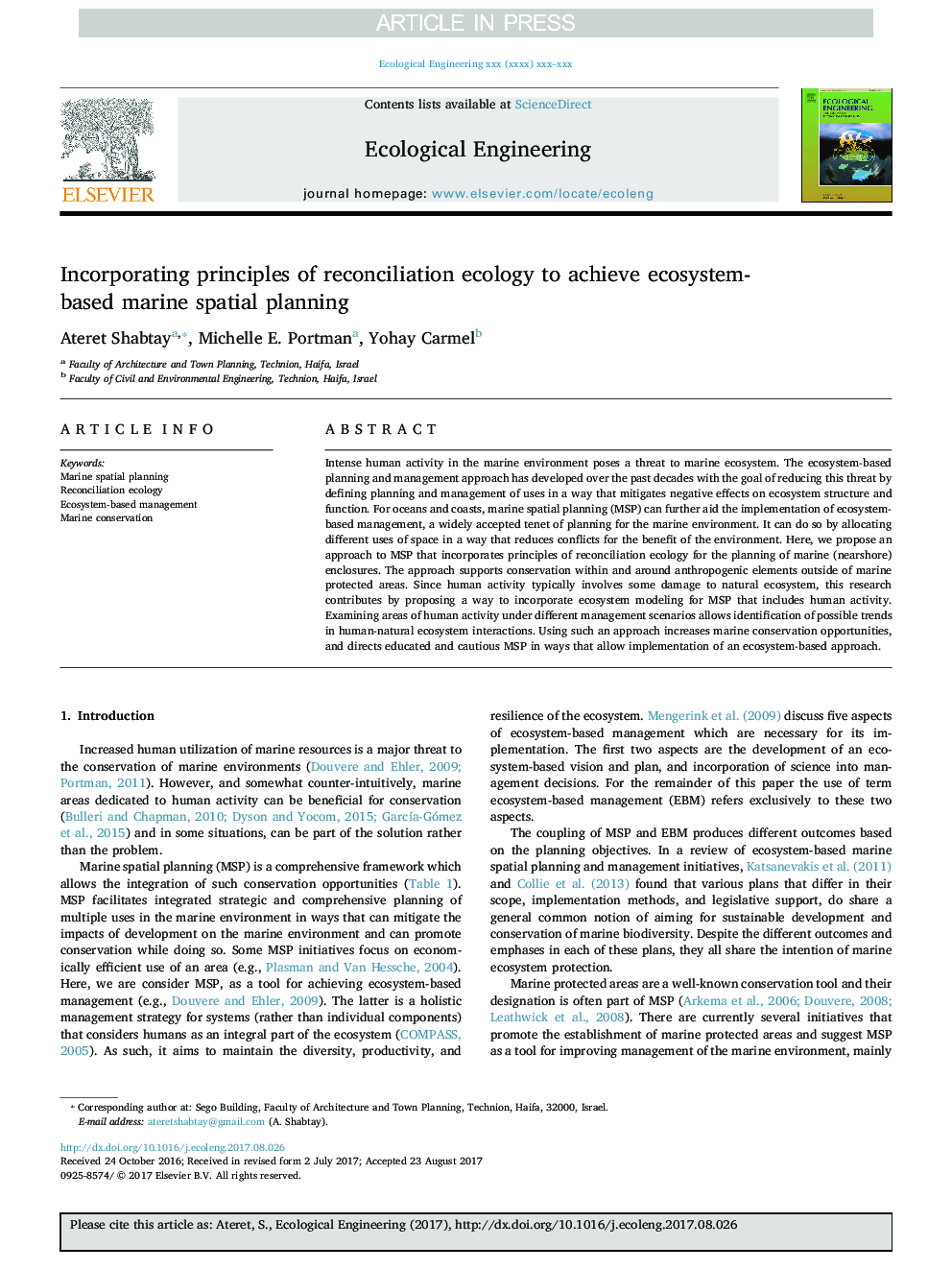| Article ID | Journal | Published Year | Pages | File Type |
|---|---|---|---|---|
| 10110143 | Ecological Engineering | 2018 | 6 Pages |
Abstract
Intense human activity in the marine environment poses a threat to marine ecosystem. The ecosystem-based planning and management approach has developed over the past decades with the goal of reducing this threat by defining planning and management of uses in a way that mitigates negative effects on ecosystem structure and function. For oceans and coasts, marine spatial planning (MSP) can further aid the implementation of ecosystem-based management, a widely accepted tenet of planning for the marine environment. It can do so by allocating different uses of space in a way that reduces conflicts for the benefit of the environment. Here, we propose an approach to MSP that incorporates principles of reconciliation ecology for the planning of marine (nearshore) enclosures. The approach supports conservation within and around anthropogenic elements outside of marine protected areas. Since human activity typically involves some damage to natural ecosystem, this research contributes by proposing a way to incorporate ecosystem modeling for MSP that includes human activity. Examining areas of human activity under different management scenarios allows identification of possible trends in human-natural ecosystem interactions. Using such an approach increases marine conservation opportunities, and directs educated and cautious MSP in ways that allow implementation of an ecosystem-based approach.
Related Topics
Life Sciences
Agricultural and Biological Sciences
Ecology, Evolution, Behavior and Systematics
Authors
Ateret Shabtay, Michelle E. Portman, Yohay Carmel,
